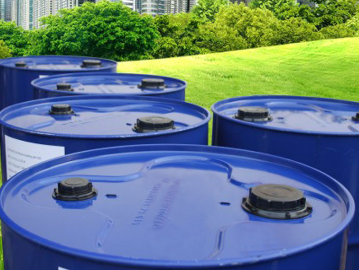
Polyurethane sealants are widely used in various industries and applications, including construction, automotive, and marine industries, due to their excellent bonding, sealing, and waterproofing properties. However, selecting the right polyurethane sealant for your project can be a daunting task, as there are several factors to consider. In this article, we will discuss the different types of polyurethane sealants available in the market and their suitability for various applications.
1. One-component polyurethane sealants:
One-component polyurethane sealants are pre-mixed and ready to use without any additional mixing or special equipment. They cure when exposed to moisture in the air, which forms a tough and flexible seal. These sealants are ideal for small projects and quick repairs, as they offer convenience and ease of use. They are commonly used for sealing joints, cracks, and gaps in construction, automotive, and industrial applications.
2. Two-component polyurethane sealants:
Two-component polyurethane sealants are composed of a base resin and a hardener or catalyst. They require mixing in a specific ratio before application and are typically used for larger projects or applications that require a faster curing time. The main advantage of two-component polyurethane sealants is their high bond strength and durability, making them suitable for heavy-duty applications such as sealing concrete, bonding metals, or filling expansion joints.
3. Self-leveling polyurethane sealants:
Self-leveling polyurethane sealants are designed to flow and level on their own when applied, providing a smooth and even finish. They are commonly used for horizontal applications, such as sealing control joints in concrete floors or repairing cracks in pavement. The self-leveling properties make them ideal for projects where aesthetics are important, as they can create a seamless and professional-looking result.
4. High-temperature resistant polyurethane sealants:
High-temperature resistant polyurethane sealants are formulated to withstand elevated temperatures without losing their physical properties. They can resist temperatures up to 250°C or higher, making them suitable for applications where heat resistance is critical, such as sealing oven doors, furnace flues, or engine components in the automotive industry. It is important to select a high-temperature resistant sealant that matches the specific temperature requirements of your project.
5. Marine-grade polyurethane sealants:
Marine-grade polyurethane sealants are specially formulated to resist water, saltwater, and harsh weather conditions, making them ideal for applications in the marine industry. They are commonly used for bonding and sealing boat hulls, decks, and joints where water ingress is a concern. Marine-grade sealants provide excellent adhesion to various substrates such as fiberglass, metals, and wood, and can withstand constant exposure to moisture and UV radiation.
6. UV-resistant polyurethane sealants:
UV-resistant polyurethane sealants are formulated to withstand long-term exposure to sunlight without deteriorating or losing their physical properties. They are commonly used for outdoor applications where UV radiation can cause sealants to degrade over time. UV-resistant sealants provide excellent weather resistance and are suitable for sealing exterior joints, windows, and doors, preventing water and air infiltration while maintaining their flexibility and adhesion.
7. Specialty polyurethane sealants:
There are also specialty polyurethane sealants available for specific applications. These can include fire-rated sealants, soundproofing sealants, or sealants with specific chemical resistance properties. It is important to consult with manufacturers or suppliers to select the right specialty polyurethane sealant that meets the unique requirements of your project.
In conclusion, selecting the right polyurethane sealant for your project depends on several factors such as the type of application, desired properties (e.g., flexibility, adhesion, durability), and environmental conditions. It is essential to carefully consider these factors and consult with manufacturers or suppliers to ensure that you choose the most suitable polyurethane sealant that will provide optimal performance and longevity for your project.